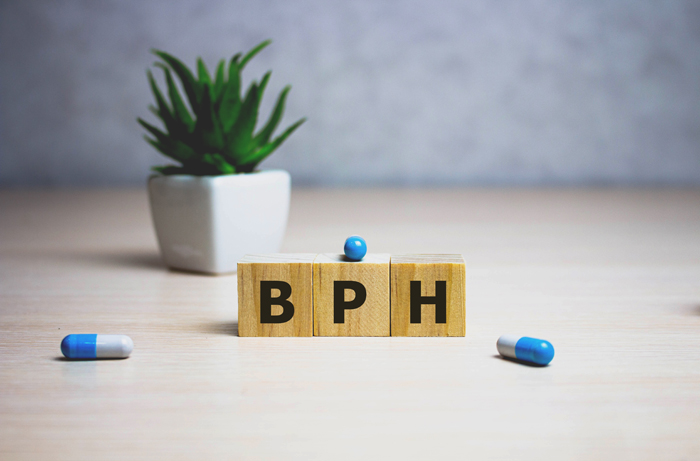Enlarged Prostate Treatment (BPH) Treatment in Alwarpet, Chennai
An enlarged prostate, also known as benign prostatic hyperplasia (BPH), is a health condition in which the size of the prostate increases.

What do we need to know about BPH?
It is a common noncancerous condition that affects older men. Statistics say as many as 50% and 90% of men are likely to experience BHP symptoms by 60 years and 85 years of age, respectively. And around 50% of them are likely to need medical attention.
Your urology specialist in Alwarpet, Chennai, will work with you to decide on the best treatment option for you. If you are looking for the best urology hospital near you, you can search for urology in Alwarpet, Chennai.
What are the symptoms of enlarged prostate?
Some of the common symptoms include:
- Nocturia (Increase in the frequency of passing urine at night)
- Frequent urination
- Urgency to urinate
- Problems with beginning urination
- Issues with emptying the bladder
- A weak stream of urine
- A urine stream that starts and stops
- Painful urination
- Dripping when urination ends
Some of the lesser-known symptoms of benign prostatic hyperplasia include the following:
- Hematuria (blood in urine)
- UTI (urinary tract infection)
- Inability to pass urine
- Kidney or bladder stones
What causes an enlarged prostate?
The exact cause of prostate gland enlargement is not known. However, age-associated changes in male hormones are likely to cause the same.
When do you need to seek medical assistance?
If you are experiencing the following signs and symptoms, go to your urology specialist in Alwarpet, Chennai, immediately:
- If you are unable to urinate
- If you see blood in your urine
- If you have fever and pain
- If you experience chills while passing urine
- If you have pain in your lower abdomen
- If you experience pain in your genitals while passing urine
Request an appointment at Apollo Spectra Hospitals, Alwarpet, Chennai.
Call 1860 500 2244 to book an appointment.
What are the treatment options for enlarged prostate?
The most appropriate treatment plan for you depends on the following factors:
- What is your age?
- How is your overall health?
- What is the size of your prostate gland?
- How severe or discomforting are your symptoms?
Medications
If your symptoms are moderate, your doctor is likely to prescribe medications, including:
- Alpha-blockers: These medicines happen to relax the neck muscles of your bladder and muscle fibers of your prostate gland to make urination easier.
- 5-alpha reductase inhibitors: This group of drugs helps shrink the size of your prostate gland while preventing the hormonal shifts leading to an enlarged prostate.
- Combination of drugs: Depending on your condition and if either medicine does not work alone, your doctor may prescribe combination drugs (alpha-blocker and a 5-alpha reductase inhibitor).
- Tadalafil: According to various studies, Tadalafil can help treat an enlarged prostate.
Minimally-invasive therapies and surgical procedures
If your symptoms are moderate to critical or medications did not help minimize the symptoms, then your doctor is likely to recommend the following minimally invasive therapies or surgical procedures:
- TURP (Transurethral Resection of the Prostate): It is a minimally invasive procedure in which your doctor inserts a resectoscope (an instrument) into your urethra through your penis without making any incision to remove the outer portion of your prostate gland. Efficient Transurethral Resection Of Prostate treatment in Alwarpet, Chennai helps relieve the symptoms quickly.
- TUIP (Transurethral Incision of the Prostate): In this procedure, your doctor inserts a lighted scope into your urethra and makes small incisions in your prostate to make urination easier.
- TUMT (Transurethral Microwave Thermotherapy): It is a non-surgical procedure in which your surgeon inserts a specially-made electrode into your prostate area through the urethra. The electrode emits microwave energy that destroys the inner part of your enlarged gland and shrinks it. It makes urine flow easier.
- TUNA (Transurethral Needle Ablation): In this procedure, your doctor places RF (radiofrequency) needles in your gland to heat and destroy the extra prostate tissues leading to enlargement of the gland and causing symptoms.
Laser therapy
- Ablative procedures: These procedures happen to vaporize the overgrown prostate tissue to help ease the urine flow. Examples of ablative procedures are PVP (Photoselective Vaporization of the Prostate) and HoLAP (Holmium Laser Ablation of the Prostate).
- Enucleation: It includes procedures like HoLEP (Holmium Laser Enucleation of the Prostate). It destroys all the prostate tissues that block urine flow while preventing regrowth.
Robot-assisted or open prostatectomy
Your surgeon makes a cut in your lower abdomen to remove the prostate tissue. You are likely to need short hospitalization after this surgery.
Conclusion
An enlarged prostate does not necessarily need medical attention. Sometimes, watchful waiting can help you recover over time. Besides, lifestyle modification, diet, medications and surgical procedures can also help. Your urology specialist in Alwarpet, Chennai, will decide on a treatment plan according to your needs. Therefore, if you experience any symptoms, make sure to consult your urology doctor in Chennai.
The risk factors of benign prostatic hyperplasia include the following:
- If your family medical history shows prostate problems or testicle-related abnormalities
- If you are 40 years old or above
- If you lead a sedentary life
- If you have medical conditions like type 2 diabetes, heart disease and obesity
- If you have erectile dysfunction
No, BHP neither has any link to prostate cancer nor does it put you at risk of developing prostate cancer. However, the symptoms of both conditions can be the same.
In some cases, the symptoms go away on their own without any treatment. However, if left untreated, it can lead to kidney damage and acute urinary retention.
Symptoms
Our Top Specialities
NOTICE BOARD
CONTACT US
CONTACT US
 Book Appointment
Book Appointment


.svg)
.svg)
.svg)
.svg)








